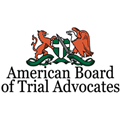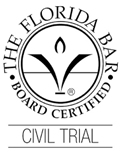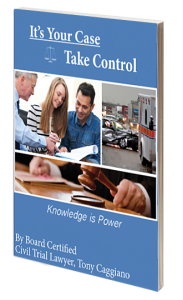Medical Malpractice FAQ
What is medical malpractice?
Medical malpractice, or medical negligence, is simply any negligent conduct by a doctor, hospital, or other health care provider which causes injury. Negligence is the failure to use reasonable care. Reasonable care, on the part of a doctor, hospital, or health care provider, is that level of care, skill, and treatment which, in light of all relevant surrounding circumstances, is recognized as acceptable and appropriate by similar and reasonably careful physicians.
Do I have a case?
We will be happy to provide you with a free consultation to determine whether, in our opinion, you have a medical malpractice case with which we can assist you. You may contact us online.
If you prefer, you may speak directly with our medical doctor/lawyer, board certified civil law trial specialist, or critical care registered nurse. Please call (407) 244-1212 for a free consultation. If our office is closed, you may leave us a recorded message, and we will return your call as soon as possible.
As a general matter, before we can properly evaluate your case, we must review the pertinent medical records. Gathering these records usually takes three or four weeks. Our medical staff will then review these records, and if it appears appropriate to proceed, will obtain an independent evaluation by a medical expert, as required by Florida law. We will keep you advised of our progress throughout this process, and as soon as we have completed our evaluation, you will be informed of our decision.
What is the Statute of Limitations and how does it apply to my case?
The Statute of Limitations is a time limit set by law, which creates a deadline for filing a lawsuit. If you file your lawsuit after the deadline, your lawsuit can be dismissed, or “thrown out of court.”
If you think you may have a claim for medical malpractice, you should contact a medical malpractice attorney as soon as possible.
In Florida, the Statute of Limitations for medical malpractice cases is two years from the date on which the patient (or the patient’s family or guardian) first knew, or should reasonably have known, that an injury occurred and that the injury was caused by medical malpractice. Even if the patient did not learn about the malpractice until much later, under no circumstances may a health care provider be sued for medical malpractice more than four years after the actual malpractice (unless there has been fraud, concealment, or misrepresentation, in which case there is the possibility of extending the deadline to seven years).
Florida Statutes Regarding Medical Malpractice
How long will my case take?
The average time from start to finish is about two years. Occasionally, a case can be settled in a matter of months; and sometimes a case will require three or more years to conclude.
How much will my attorney charge?
Your medical malpractice case will be handled on a contingency fee basis, which means that you only have to pay attorney fees if we obtain a recovery for you, either by settlement or trial. If we do not obtain a recovery, you will owe us nothing.
If we agree to represent you, the exact terms of our charges will be spelled out in your written contract with us.
More information on selecting a lawyer?
Maybe you have never needed the services of an attorney before; but now you do. Obviously, you want a lawyer who is qualified, able to handle your particular legal situation, and who has expertise in the area of law relating to your legal needs.
To assist you in finding such a lawyer, the Supreme Court of Florida directed The Florida Bar to offer a “Board Certification” program for Florida Bar members. The program is designed to help the public make an informed decision when seeking and selecting a lawyer.
While all lawyers are allowed to advertise, only certified attorneys are allowed to identify themselves as “Florida Bar Board Certified” or as a “specialist.” Certification is the highest level of recognition by The Florida Bar of the competency and experience of attorneys in the areas of law approved for certification by the Supreme Court of Florida.
A lawyer who is a member in good standing of The Florida Bar and who meets the standards set by the Supreme Court of Florida, may become a “Board Certified Civil Trial Lawyer.”
Board Certified Lawyers in Civil Trial Law deal with litigation of civil controversies in all areas of substantive law before state and federal courts, administrative agencies and arbitrators. In addition to actual pretrial and trial process, civil trial law includes evaluating, handling and resolving civil disagreements prior to the initiation of a lawsuit.
Every board certified civil trial lawyer has practiced law on a full-time basis for at least five years and has been substantially involved – 30 percent or more – in the area of civil trial law during the three years preceding application. To be certified, the lawyer is required to have conducted at least 15 contested civil cases in courts of general jurisdiction during the lawyer’s practice, including cases before a jury and as lead counsel. Credit is given to the lawyer if he or she has served as a judge.
Each certified lawyer must also have passes peer review, completed 50 hours of continuing legal education within the three years preceding application and passed a written examination demonstrating knowledge, skills and proficiency in the field of civil trial law to justify the representation of special competence.
Board certification is valid for five years, during which time the attorney must continue to practice law and attend Florida Bar-approved continuing legal education courses. To be recertified, requirements similar to those for initial certification must be met. Not all qualified lawyers are certified, but those who are board certified have taken the extra step to have their competence and experience recognized.
Civil Trial certification was approved by the Supreme Court of Florida in 1982. Attorney Anthony J. Caggiano has been board certified in civil trial law since 1992 and has served as the Chairman of the Civil Trial Certification Committee of the Florida Bar.







